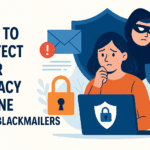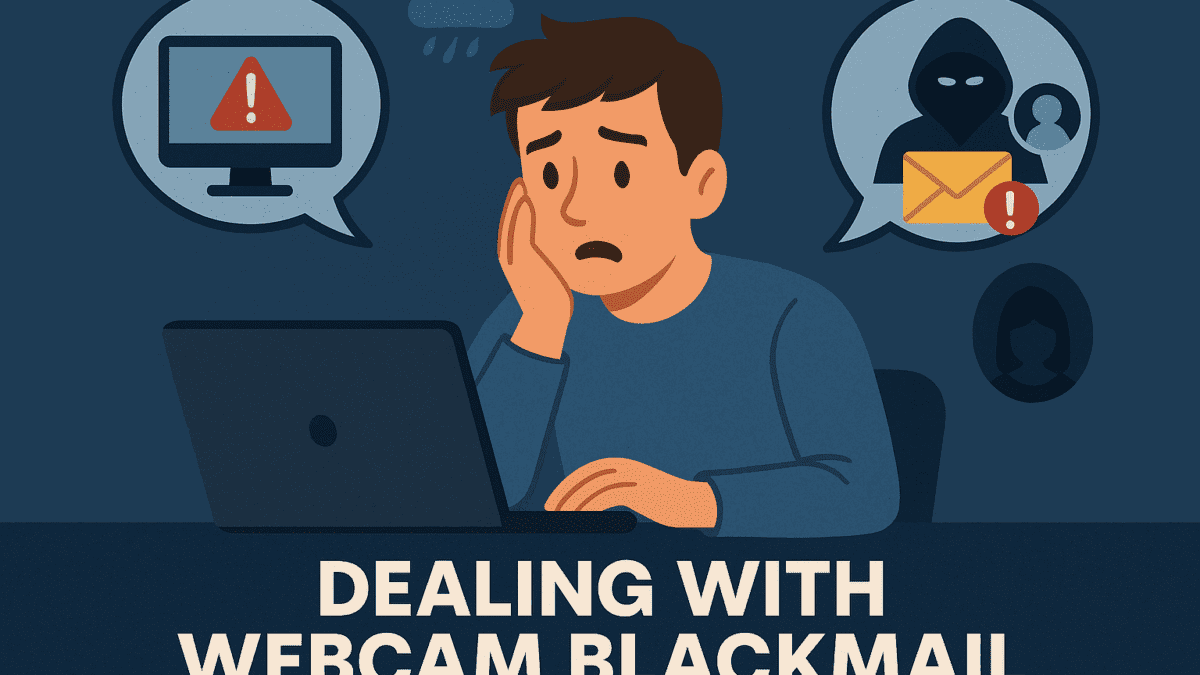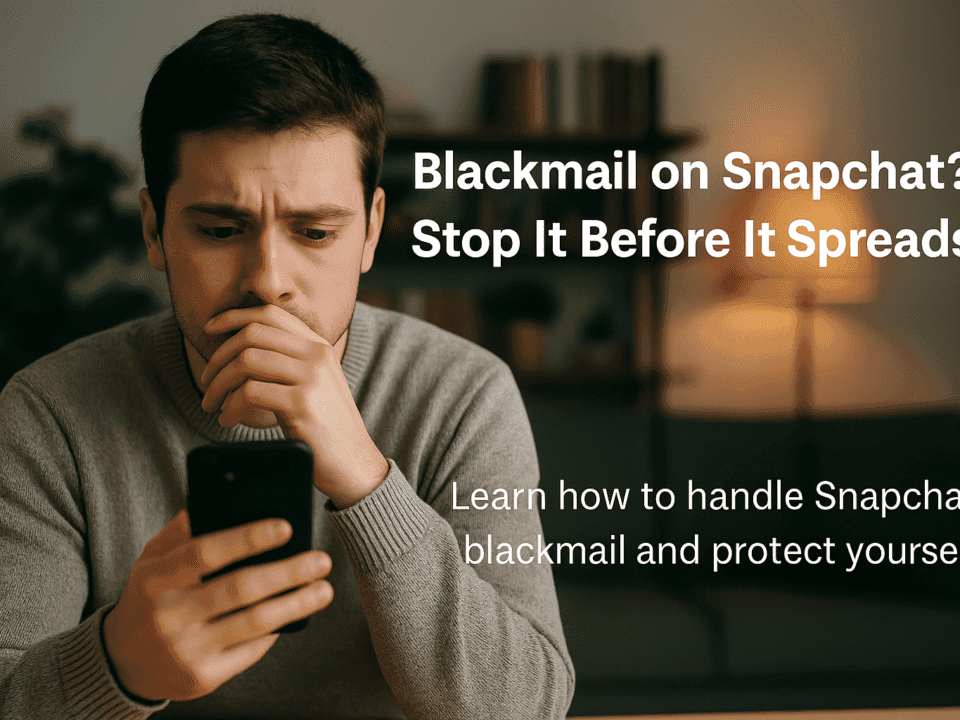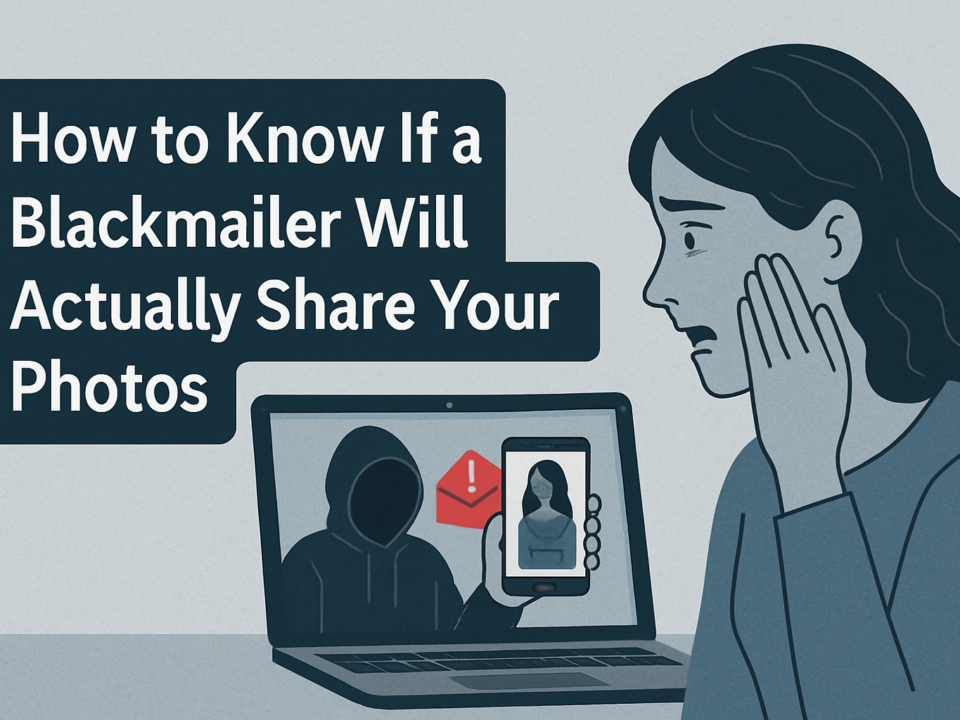
Real Stories: How Victims Overcame Online Blackmail
June 5, 2025
Protect Your Privacy Online: Tips to Prevent Blackmail and Online Threats
June 5, 2025You’re Not Alone — And It’s Not Your Fault
Imagine this:
You meet someone online.
A conversation turns private.
Maybe a video call happens.
Maybe you trusted them.
Then, the nightmare message arrives:
"Send me money — or I’ll send your video to everyone you know."
Your heart sinks. Panic sets in. Shame floods over you.
But you are not alone.
Webcam blackmail — sometimes called "sextortion" — is one of the fastest-growing online scams worldwide.
It preys on trust, fear, and isolation.
And while it feels personal, it’s often an industrialized scam.
The most important thing to know right now:
There’s a smart way forward — and it doesn't involve paying.
Understanding the Blackmailer’s Game
It feels like they have all the power.
But their weapon isn't just the video — it's your fear.
Here’s what most webcam blackmailers are really doing:
They use fake profiles (often stolen photos) to lure victims.
They record the victim during private video chats.
They threaten mass exposure to create instant panic.
They demand fast payments — often small amounts at first, but sometimes escalating.
Many scammers:
Don’t actually send anything — they just threaten.
Send to a few contacts randomly if they feel ignored.
Mass-message dozens of victims daily.
It’s a numbers game for them.
The less you panic, the weaker their power becomes.
First Steps: What to Do If You’re Being Blackmailed
Before reacting, pause.
The instinct to delete everything or immediately pay can backfire.
Here’s what many cybersecurity experts recommend based on real-world outcomes:
🛡 Step 1: Save the Evidence
Screenshot everything — messages, usernames, threats.
Record usernames and profile URLs of the scammer.
If possible, save copies of videos or messages they sent.
Evidence matters — whether you seek help later or need it for reports.
🛡 Step 2: Lock Down Your Privacy
Review your social media settings.
Set everything to private.
Remove any sensitive information (phone numbers, locations, work details) from profiles.
Blackmailers often exaggerate what they know about you.
Limiting their view starves their leverage.
🛡 Step 3: Don’t Negotiate, Threaten, or Panic
Avoid paying.
Avoid threatening them ("I’ll go to police!") unless advised strategically.
Avoid reacting emotionally — blackmailers are trained to exploit that.
Staying silent often deprives them of emotional fuel.
🛡 Step 4: Report and Monitor
Report their accounts to the platform (Facebook, Instagram, Snapchat, WhatsApp, etc.)
Consider reporting to a local cybercrime agency if you feel safe doing so.
Monitor your accounts quietly for any suspicious activity.
Even if a scammer claims they "already sent" material, they often haven't — it’s a scare tactic.
Why Paying Often Makes Things Worse
While it’s tempting to pay to "make it go away," here’s why many experts advise against it:
Paying confirms you're scared and willing to pay more
Scammers often come back for additional demands
Your name may be shared among scammer groups
There's no guarantee they won’t leak anyway
Victims who paid often faced more harassment, not less.
What If They Leak Something?
The fear of exposure is paralyzing — but exposure is not the end of your life.
If it happens:
Stay calm.
Notify your close family/friends before scammers reach them ("My accounts were hacked.")
Contact platforms to request content takedowns (Facebook, Instagram, etc.)
Focus on long-term recovery, not short-term panic.
Leaks are rare compared to threats — but if they happen, fast action to limit spread is possible.
Moving Forward: Regain Your Control
It’s easy to feel broken after a blackmail threat.
But the truth is:
This does not define you.
You are not foolish.
You still have agency.
Many victims recover fully — emotionally, socially, and online.
The key is protecting your digital presence, breaking the isolation, and moving forward smarter.
Help exists.
Quiet, discreet guidance exists.
You don’t have to go through this alone.




